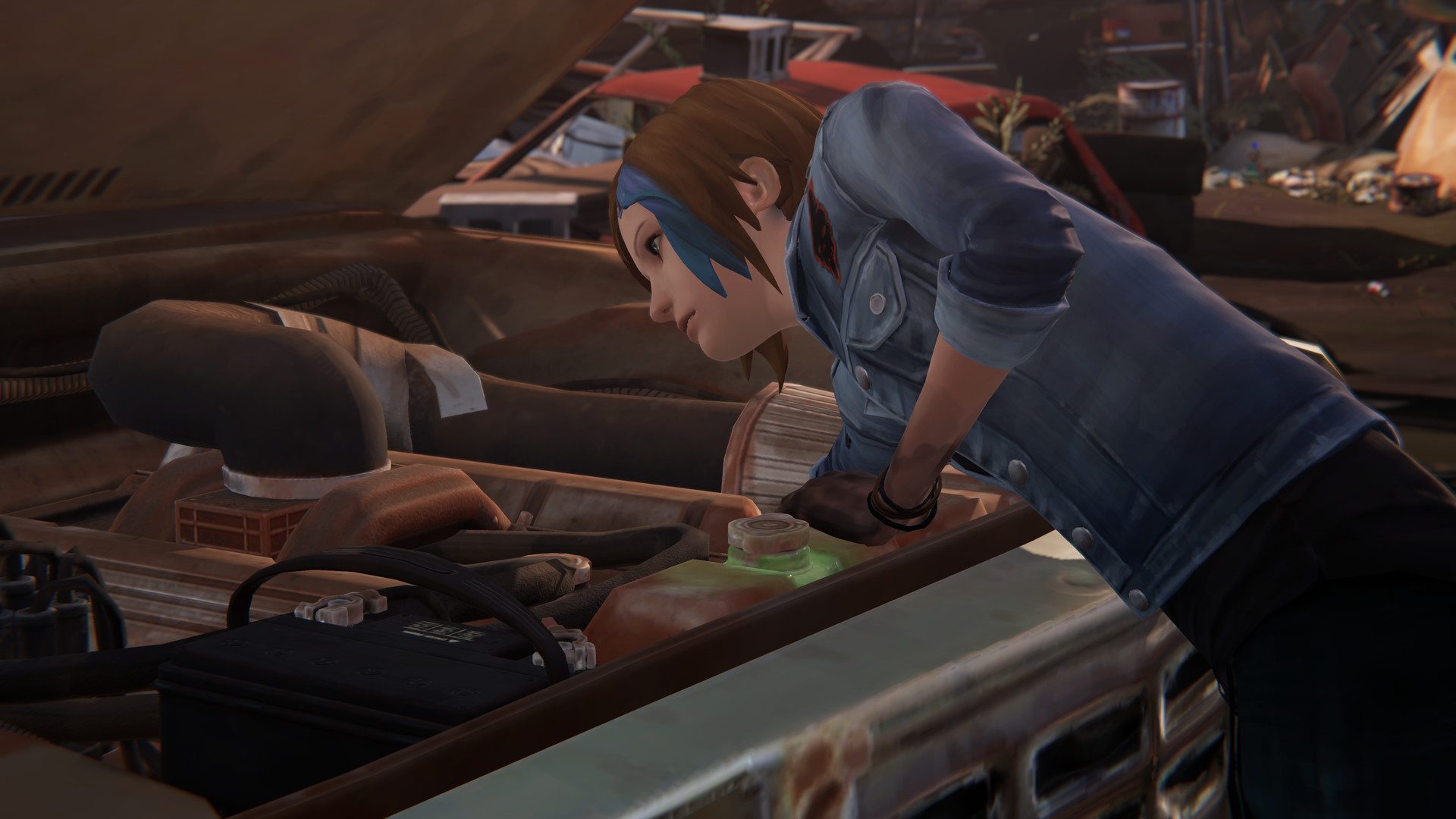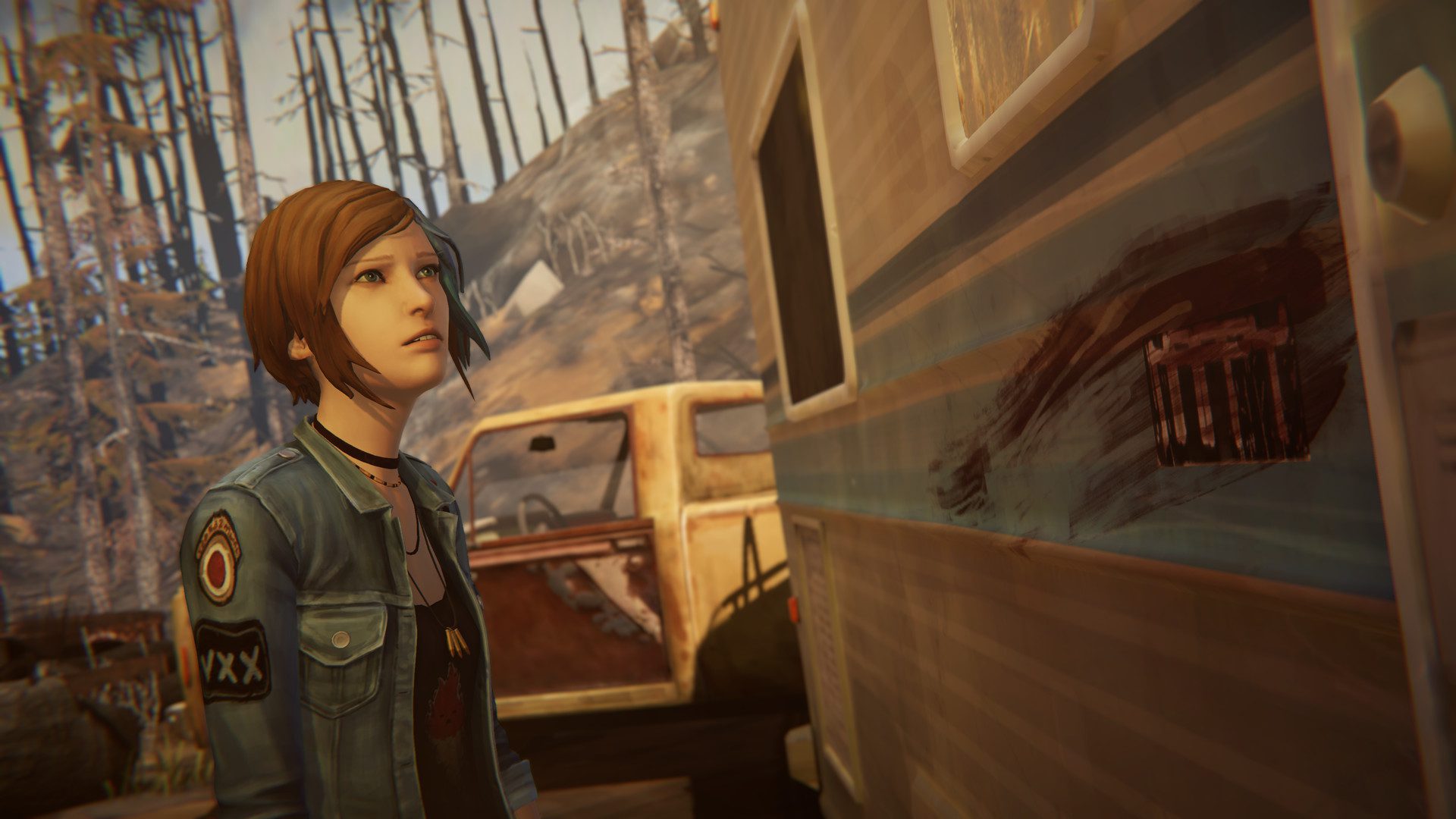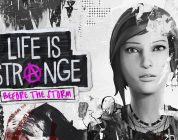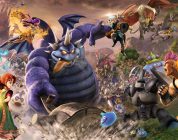Episode three of Life is Strange: Before the Storm is not subtle is its presentation of its theme: truth. While Hell is Empty is light on Backtalk Challenges and general choices of major consequence, players are asked to decide what the meaning of truth is to them, and if they consider withholding it an act of protection or an act of betrayal. The previous episodes touched on the same theme, but not in the way this episode hits players over the head with it. But, even with such a strong, philosophical base, episode three is a weak final episode that asks players to make an ultimate choice that results in little consequence.
Without spoiling anything, whole of this episode focuses on Chloe trying to arrange a meeting between Rachel and Sera. Chloe’s own turmoil takes a major backseat to the immediacy that is Rachel’s secret wrapped life to the point where the only reason Chloe still feels like a main character is because she is the only playable character. This doesn’t mean that Rachel’s story isn’t good; it’s as enthralling as a juicy episode of Law and Order, with the right amount of jaw-dropping drama. But, over the course of each episode, Rachel’s story has overtaken Chloe’s to the point where her angsty attitude toward David and her mother are relevant only because the player can choose to still be angry at them. It’s not a bad shift, but it’s one that plateaus the player’s emotional connection to Chloe rather than strengthens it. Chloe’s significance as a lone character in this episode is held together by the fact that she is an active protagonist—she gets stuff done. It’s all for Rachel at the expense of her own safety, unfortunately.
Unlike the previous two episodes, this one suffers from major pacing issues; Sera’s relation to the Amber family doesn’t come off as some grand revelation, but rather as another iteration of an over-used plot-device. As heartbreaking as this scene is to watch, James’ poetic waxing about the past leads the player by the hand too much, as it’s likely they’ve already figured out how the story about Sera is going to go before he finishes. It’s tough to watch Rachel comes to terms with her new reality, and her feelings and decisions that follow are believable and justified, yet an “accident” takes Rachel out for much of the story, making her a passive character when the story becomes mostly about her.
A second point in the game where the pacing slows is another DnD scene with Mikey, Steph, and Drew. Again, without spoiling anything, this scene take place after Rachel’s “accident.” The plot is in full force by this point and should be continuing to snowball, yet the game forces the player to sit through a 10-15-minute DnD game when it’s not as interesting compared to what else is going on, and is also of little consequence. It’s a well-written scene and just as fun as the first time Chloe played DnD with the same friends, but it’s placed at the wrong point in the story. It stops the action abruptly, and it’s kind of annoying. Also, this scene suffers from the worst and only glitches in the game. Mikey’s head protrudes from the middle of Steph’s chest at one point, and Drew’s hands covers her face at another while he was texting. A second playthrough did not get rid of these glitches.
Another pacing issue involves a scene between Eliot and Chloe. Eliot has remained a very minor character throughout the series. Choosing to interact with him or not wouldn’t result in any consequences, so the players doesn’t get to know much about him nor see and kind of friendship develop between the two. Chloe does note in her journal that she had hooked-up a few times with Eliot soon after her dad died, but makes it clear that she has no romantic feelings for him. However, there is nothing between their interactions in the game that even mildly suggest this, so if the player doesn’t read Chloe’s journal thoroughly, he comes off as more of an acquaintance.
Players see a super possessive, abuser-in-the-making version of Eliot in Hell is Empty, one that is jealous of how much time Chloe spends with Rachel. While he’s not entirely wrong about Rachel’s negative influence in her life, he corners Chloe and makes her feel physically threatened. The entire scene would make sense to have in the game if Chloe had a strong, established relationship with Eliot, but the game never shows that. As a result, the scene is completely unnecessary. It dampens the pacing, which the episode already struggles with up until this scene. It could be completely removed, and the game would not suffer from the loss.
In contrast, the final scene between Chloe and her dad fit perfectly into the section of the story where it appears. This scene is a hard foreshadowing of what happens immediately after, but this scene between father and daughter is by far the most touching out of all the episodes. It’s here that he gives Chloe some major grown-up wisdom, and it’s here that Chloe is the most mature she has ever been. Regardless of choices the player makes, the scene has the same significance. Hell is Empty would not be the same without it. In fact, it’s just as good or even better than Chloe and Rachel dancing under the street lights while ash rains down from the forest fire.
Speaking of the fire—just a McGuffin. Its symbolism is loosely connected to the story at best, but it’s significance is reduced to ash (pun intended) by the middle of the episode. The fire plot-device could be removed, and the story would not suffer from it. It seems it was put in there merely for dramatic effect without a real plan as how to integrate it with the story through all three episodes.
And now for the big one—the endings. Since the theme of episode three is truth and how those we love sometimes to protect us by hiding it, it makes perfect sense that Chloe would be tested by this: hide the truth from Rachel to protect her, or tell her the truth and alter her life drastically forever. While Hell is Empty does show the player a brief montage of the consequences of their actions, the scenes the follow are the same regardless of the player’s choice: an uplifting picturesque montage of Chloe and Rachel that oozes BFF vibes. This was the biggest let down of all. Regardless of the choice, the ending is closer to happily ever after than it should be—until the scene after the credits, but those who have played the original game knew that was coming. That scene added a hint of satisfaction, but nothing to hide the fact that episode three ends with some big holes, and missed story and character development opportunities.
Hell is Empty was satisfying in the sense that it delivered something out of the pages of a crime drama, but as far as keeping continuity with itself and with the original game, the episode left much to be desired. These first two episodes leave such a strong emotional resonance that stick around long after they end and, unfortunately, episode three isn’t on par.
For more information on Life is Strange: Before the Storm, check out the official website. A copy of the game was purchased by the writer.








